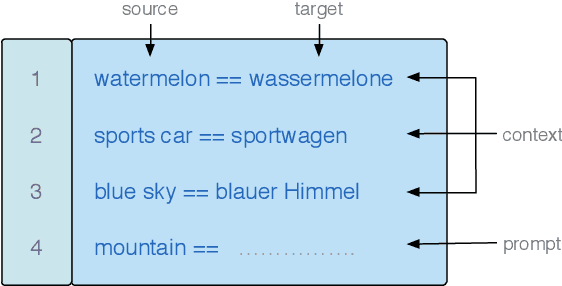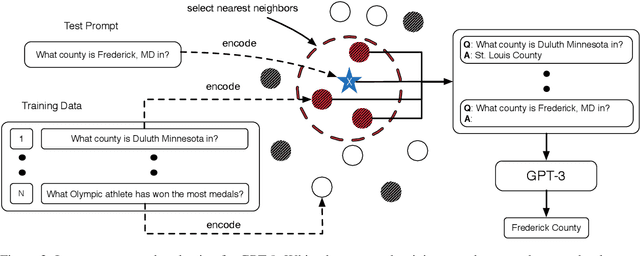What Makes Good In-Context Examples for GPT-$3$?
Paper and Code
Jan 17, 2021



GPT-$3$ has attracted lots of attention due to its superior performance across a wide range of NLP tasks, especially with its powerful and versatile in-context few-shot learning ability. Despite its success, we found that the empirical results of GPT-$3$ depend heavily on the choice of in-context examples. In this work, we investigate whether there are more effective strategies for judiciously selecting in-context examples (relative to random sampling) that better leverage GPT-$3$'s few-shot capabilities. Inspired by the recent success of leveraging a retrieval module to augment large-scale neural network models, we propose to retrieve examples that are semantically-similar to a test sample to formulate its corresponding prompt. Intuitively, the in-context examples selected with such a strategy may serve as more informative inputs to unleash GPT-$3$'s extensive knowledge. We evaluate the proposed approach on several natural language understanding and generation benchmarks, where the retrieval-based prompt selection approach consistently outperforms the random baseline. Moreover, it is observed that the sentence encoders fine-tuned on task-related datasets yield even more helpful retrieval results. Notably, significant gains are observed on tasks such as table-to-text generation (41.9% on the ToTTo dataset) and open-domain question answering (45.5% on the NQ dataset). We hope our investigation could help understand the behaviors of GPT-$3$ and large-scale pre-trained LMs in general and enhance their few-shot capabilities.
 Add to Chrome
Add to Chrome Add to Firefox
Add to Firefox Add to Edge
Add to Edge